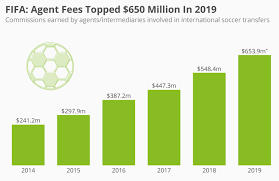
Introduction: The best football league in the world is not only a source of thrilling entertainment but also a significant economic powerhouse. This article analyzes the economic impact of the league on both local and global scales. We’ll explore how the league generates revenue through broadcasting rights, sponsorship deals, and merchandise sales. The piece will also examine the financial benefits for cities hosting major clubs, including job creation, tourism, and infrastructure development. Additionally, we’ll discuss the league’s role in setting financial standards in the football industry.
Revenue Generation: Broadcasting Rights: The sale of broadcasting rights is one of the primary revenue streams for the league. Television networks and streaming platforms around the world bid fiercely for the rights to broadcast matches, leading to multi-billion dollar deals. These contracts not only provide substantial income for the league but also ensure that fans across the globe can enjoy the matches.
Sponsorship Deals: Major corporations are eager to associate their brands with the league due to its immense popularity. Sponsorship deals, including naming rights for stadiums, kit sponsorships, and official partnerships, generate significant revenue. These deals often involve long-term contracts worth hundreds of millions of dollars, contributing to the financial stability of the league.
Merchandise Sales: Merchandise sales, including jerseys, scarves, and other fan gear, are a crucial source of income. The global fan base eagerly purchases official merchandise, both online and at physical stores, further boosting the league’s revenues. Limited edition items and collaborations with popular brands also drive sales and add to the league’s commercial success.
Financial Benefits for Host Cities: Job Creation: The presence of major football clubs in cities creates numerous job opportunities. From stadium staff and club employees to roles in hospitality and retail, the league’s activities support a wide range of employment. Additionally, matchday operations, security, and transportation services require a significant workforce.
Tourism: Football tourism is a growing phenomenon, with fans traveling from around the world to watch matches and visit club museums and landmarks. This influx of visitors boosts local economies, with increased spending on accommodation, dining, and entertainment. High-profile matches, such as derbies and finals, attract even larger crowds, leading to substantial economic benefits for host cities.
Infrastructure Development: Hosting a top football club often leads to significant infrastructure development. Cities invest in stadium renovations, improved transportation links, and enhanced public facilities to accommodate the needs of both local residents and visiting fans. These developments not only support the league’s operations but also leave a lasting legacy for the community.
Setting Financial Standards: Financial Fair Play: The league’s implementation of financial fair play regulations aims to ensure that clubs operate within their means. These rules promote financial stability, prevent excessive spending, and encourage sustainable growth. By setting strict financial standards, the league helps maintain a competitive balance and protects the long-term interests of its clubs.
Transparency and Governance: The league’s emphasis on transparency and good governance has set a benchmark for other football leagues. Regular financial audits, clear reporting structures, and ethical business practices are integral to maintaining the league’s integrity. This commitment to financial responsibility enhances the league’s reputation and attracts investors and sponsors.
Global Influence: Economic Ripple Effect: The economic impact of the league extends beyond its immediate stakeholders. The success of the league inspires investments in youth academies, grassroots programs, and community initiatives. The league’s popularity also drives the global football economy, influencing the market for player transfers, coaching, and sports technology.
Brand Value: The league’s strong brand value attracts international investments and partnerships. Global companies seek to leverage the league’s extensive reach and engaged fan base to promote their products and services. This symbiotic relationship further strengthens the league’s economic position and broadens its influence.
Conclusion: The economic impact of the best football league in the world is profound and multifaceted. Through revenue generation from broadcasting rights, sponsorship deals, and merchandise sales, the league secures substantial income. Host cities benefit from job creation, tourism, and infrastructure development, while the league sets financial standards that promote stability and growth. The league’s global influence drives the broader football economy and enhances its brand value. As the league continues to evolve, its economic significance will undoubtedly grow, reinforcing its status as a key player in the global sports industry.



0 Comments